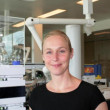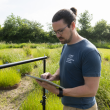Search
Filter by
Type
Tags
Dossiers
Themes
Departments
Active filters
1032 search results
Search results
-
Koen Verhoeven
Senior Researcher -
Kyle Mason-Jones
Researcher
-
Eiko Kuramae
Senior Researcher
-
Ciska Raaijmakers
Research assistant
-
Steven de Goede
PhD Candidate -
Steven Declerck
Senior Researcher
-
Roy Visee
ICT Staff
-
Agata Pijl
Research assistant
-
Freddy ten Hooven
Research assistant
-
Han Wang
PhD Candidate
